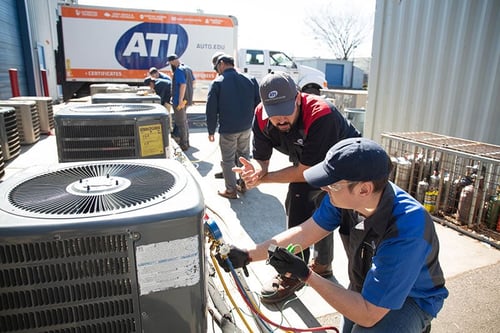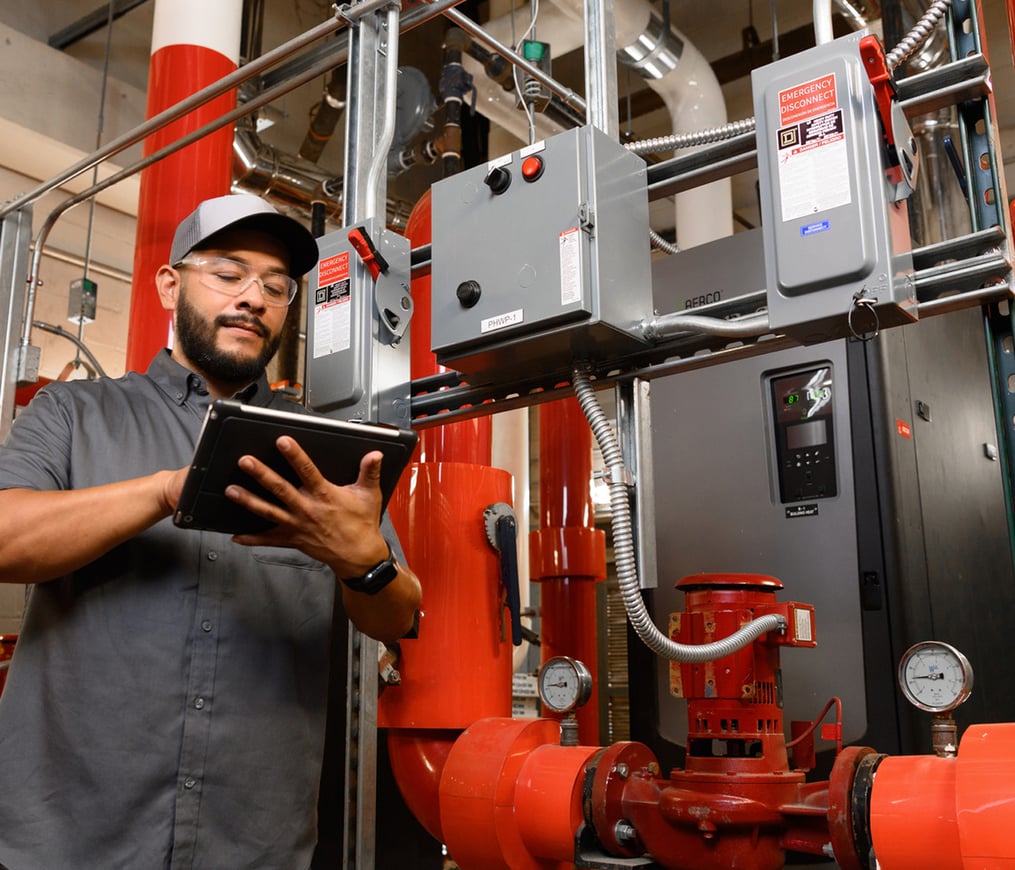Residential AC System Installation for Effective Home Air Conditioning
Residential AC System Installation for Effective Home Air Conditioning
Blog Article
A Thorough Consider A/c Services and Their Effect On Energy Effectiveness and Price Savings
The duty of cooling and heating services in improving energy efficiency and attaining cost savings is a lot more vital than ever before, as home owners and companies seek sustainable services in a significantly eco-conscious world. With technical improvements like smart thermostats and high-efficiency parts, the capacity for optimizing system efficiency is substantial. Yet, real effect of these advancements depends largely on regular upkeep and proactive issue administration. As we check out the intricate connection between a/c systems and operational costs, including the change towards eco friendly choices, the question emerges: how can these strategies be effectively applied to maximize both financial and ecological advantages?

Significance of A/c Solutions
heating and cooling systems are an essential component of modern-day buildings, playing a crucial role in maintaining comfy and healthy and balanced interior environments. These systems, incorporating home heating, air, and air flow conditioning, are vital for regulating temperature level, humidity, and air quality, thus ensuring the wellness of occupants. Efficient heating and cooling systems contribute substantially to producing an optimum interior climate, which is critical for both household and business areas.
In industrial buildings, a/c systems are essential to offering a risk-free and effective environment. By controlling indoor environment problems, these systems assist prevent the development of mold and mildew and the spread of air-borne pollutants, thus securing the health and wellness of customers and workers. Furthermore, in domestic setups, a/c systems improve living conditions by providing constant thermal convenience and enhancing interior air quality, which is important for general wellness.
Furthermore, the style and maintenance of heating and cooling systems have a direct influence on energy consumption and functional costs. Effectively created and maintained systems can significantly decrease power usage, resulting in reduced energy expenses and a smaller carbon impact. The efficiency of these systems hence plays a crucial duty in promoting sustainability and energy preservation within structures, highlighting their relevance in the contemporary architectural landscape.
Advancements in Heating And Cooling Innovation
Advancement in HVAC technology is reinventing the means buildings manage interior environments, ushering in a new period of efficiency and control. Recent advancements have concentrated on maximizing energy intake while boosting user comfort. One remarkable growth is the assimilation of wise thermostats, which make use of expert system to learn occupancy patterns and readjust temperature levels accordingly, minimizing unnecessary energy use.
Variable Refrigerant Flow (VRF) systems represent an additional substantial leap ahead. These systems enable specific temperature control in different zones of a building, boosting comfort and decreasing energy waste. VRF innovation is specifically advantageous for big industrial rooms, providing flexibility and scalability.
Additionally, the introduction of Net of Things (IoT) tools has actually transformed HVAC systems right into interconnected networks efficient in real-time data collection and evaluation. This connection allows predictive upkeep, ensuring systems operate at peak performance and reducing unexpected downtime.
Moreover, innovations in products and design, such as using high-efficiency coils and compressors, have boosted overall system performance - Heating Contractor. The adoption of eco friendly refrigerants also highlights the sector's commitment to sustainability
These technological innovations are crucial in decreasing functional expenses and ecological effect, establishing new criteria for constructing environment management.
Cooling And Heating Upkeep and Efficiency
Ensuring ideal performance of HVAC systems extends beyond technological advancements; it also rests on reliable maintenance methods. Regular upkeep is essential for maintaining performance, lowering power intake, and prolonging the life period of heating and cooling systems. The main goal is to make certain that all parts operate at their peak potential, thereby decreasing energy wastage and preserving consistent interior convenience degrees.
Regular maintenance tasks, such as cleansing or changing air filters, checking cooling agent levels, and checking ductwork for leaks, are crucial for preventing unneeded stress on like this the system. Filthy or stopped up filters can block air movement, triggering the system to work tougher and eat even more energy. Also, insufficient cooling agent levels can lower cooling effectiveness, causing greater operational expenses.
Furthermore, regular inspections by qualified specialists can recognize prospective concerns before they rise right into expensive repairs or system failures. These inspections often consist of inspecting electric connections, calibrating thermostats, and ensuring the overall stability of the cooling and heating system. By dealing with small problems early, home owners and businesses can stay clear of unforeseen breakdowns and improve power performance.
Economical A/c Solutions
For those wanting to get one of the most out of their heating, air, and air flow conditioning systems without breaking the bank, checking out economical heating and cooling remedies can make a significant distinction. One instant procedure is to purchase programmable thermostats, which permit users to establish details temperatures for various times of the day, enhancing power usage and minimizing unneeded usage. By automating temperature level changes, property owners can attain considerable financial savings on power expenses.
Regular upkeep is an additional essential part of cost-effective cooling and heating management. Guaranteeing that filters are cleaned up or changed regularly, ductwork is secured, and systems are serviced by experts can avoid expensive fixings and enhance system long life. Preventive upkeep not just keeps system performance yet likewise assists in preventing unanticipated failures that can lead to costly emergency situation fixings.
In addition, retrofitting existing systems with energy-efficient elements, such as variable rate electric motors or high-efficiency compressors, can be a prudent financial investment. These upgrades improve functional performance, decrease power usage, and can typically be carried out at a portion of the price of a complete system substitute.
Ecological Effect Decrease
Lowering the ecological effect of A/c systems is essential in today's search of sustainable living. HVAC systems are considerable contributors to energy consumption, accounting for almost 40% of power usage in business structures.
Technical innovations in cooling and heating layout and click site procedure, including the assimilation of wise thermostats and energy-efficient heatpump, are critical in reducing carbon footprints. These advancements enable for maximized power usage, minimizing wastefulness and boosting total system performance. Furthermore, adopting regular upkeep techniques makes certain a/c systems operate at peak effectiveness, additional cutting unneeded energy intake.
Moreover, using eco-friendly refrigerants is crucial, as traditional cooling agents, like CFCs and HCFCs, have been terminated due to their ozone-depleting properties. Modern alternatives, such as hydrofluoroolefins (HFOs), deal reduced environmental dangers, lining up with international environmental methods. By embracing these lasting methods, a/c services can play a transformative role in minimizing environmental influences, promoting power performance, and fostering an extra lasting future.
Conclusion

In addition, the style and upkeep of A/c systems have a direct influence on power usage and functional prices. Regular maintenance is essential for maintaining performance, minimizing power consumption, and prolonging the life period of HVAC systems. HVAC systems are substantial factors to energy usage, accounting for virtually 40% of power usage in industrial buildings. Additionally, adopting regular maintenance practices ensures Heating and cooling systems operate at peak performance, more stopping unneeded energy intake.
The transition to environmentally pleasant A/c systems even more promotes and reduces operational expenses sustainability. (Heating Contractor)
Report this page